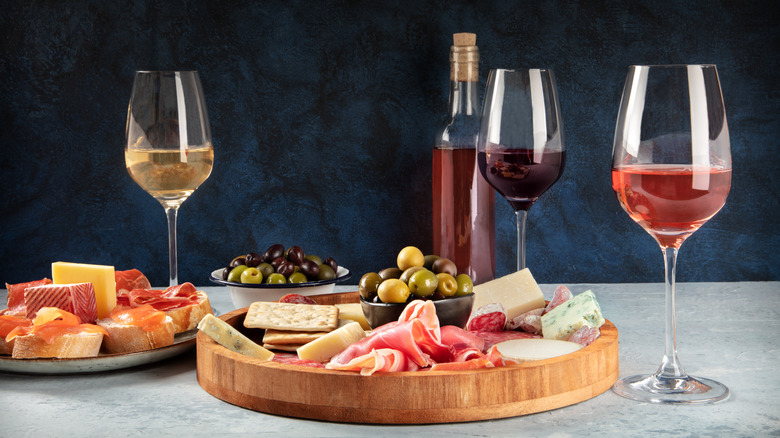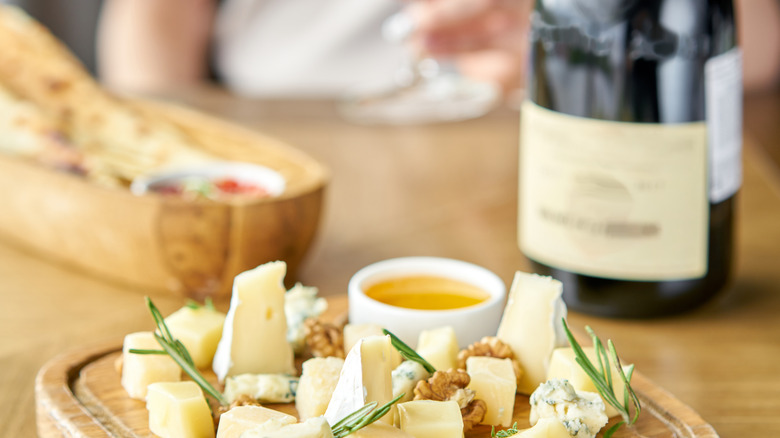Why You Should Think Twice About Pairing Red Wine With Soft Cheese
Crafting a perfect wine and cheese pairing takes more effort than simply uncorking the first bottle you find and unwrapping a wedge of cheese you're storing in the back of your refrigerator. It can be easy to accidentally create clashing flavor combos – and red wine and soft cheese, a seemingly intuitive pairing, is actually one you should probably rethink next time you visit the cheesemonger.
The relatively high tannins and low acidity in many red wines can give soft cheeses a chalky flavor, cheese author Laura Werlin tells Real Simple. Wine educator Caroline Conner tells Mashed that the erroneous red-Brie pairing is one thing many people get wrong about French cheese. "Red wine and cheese is actually a lot more difficult because of tannins and bitterness, [which] often, in my opinion, kind of mess with cheese, especially washed rind cheeses and creamy cheeses like Brie," Conner says. "They kind of make the red wine feel metallic."
Instead of pairing soft cheese with just any red wine, some cheese experts recommend you pick one or the other and build out from there. So how should you go about crafting the perfect wine-and-cheese evening?
How you should fix your cheese and wine pairings
When enjoying wine and cheese, factors like acidity, sweetness, saltiness, and boldness of flavor can make or break a pairing. So after you've thought twice about pairing a red wine with a buttery triple creme, what should you adjust to improve the balance of flavors?
If you're committed to red wine, Laura Werlin, the cheese author, recommends a cheese that can stand up to the wine's full body and strong flavor, like an aged cheddar (via Real Simple). And if possible, try to find a red wine like Gamay or pinot noir to echo more traditional pairings. As French cheese expert Jennifer Greco tells Mashed, "The red wine and cheese tradition goes back to when farmers drank a lighter, fruitier red that was very low in tannins and therefore didn't clash with the flavors in the cheese."
On the other hand, if wine choice is flexible but soft cheese is a must, try a crisp or even effervescent white. "Traditionally, white wines and sparkling wines will be a soft cheese's best friend," cheesemonger extraordinaire Ken Monteleone tells Mashed. Plus, he says, white wines that are naturally higher in sweetness and acidity will help offset the saltiness of many firm, aged, and blue cheeses. So next time you get the urge to jump on the popular charcuterie board trend, you'll have plenty of options to unlock the perfect pairing – if you just know to be careful crossing tannins with Taleggios.

